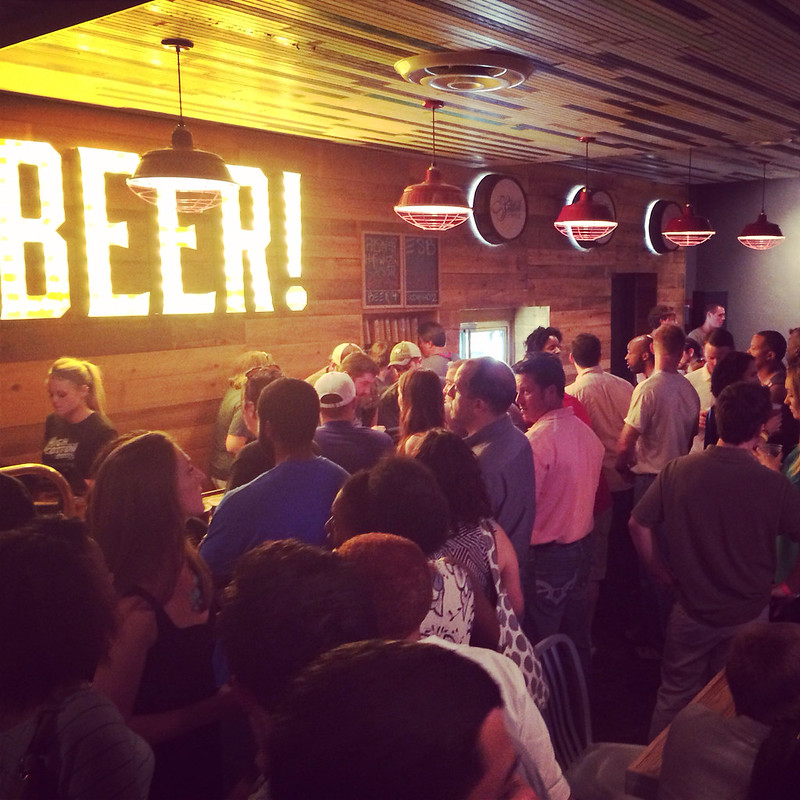Strategies for Licensing Remote Taprooms in Florida

In most cases, a craft brewery in Florida consists of a single structure divided into two parts. One part is the brewery, which has the required federal and state licenses to make beer. The other part is the taproom, which has a state license to sell beer for consumption on premises (and might also be licensed as a restaurant). As required by federal and state law, the brewery and the taproom are physically separate to ensure that patrons cannot have direct access to tax unpaid beer.
What happens when the structure that contains the brewery cannot accommodate a separate taproom? Or, what if the the brewing company would like to have a separate taproom that is across the street, or across town?
Here are two licensing strategies that allow brewing companies to support taprooms that are not directly contiguous to the brewery.
Strategy #1: The Single, Divided Complex
The Florida Beverage Law (specifically, Florida Statutes Section 561.221(2)(a)) allows a brewing company to have a taproom that is not directly contiguous to the brewery, provided its is part of a single complex that is divided by not more than one public road or highway.
“Single complex” is not defined by the Florida Beverage Law, so the term should have its ordinary, but imprecise, meaning. A single complex generally refers to a collection of separate parts that work together for a common purpose. A building that houses a brewery and a taproom is clearly a single complex. But a single complex could be created when a brewery and taproom, while not within the same building, are close enough in proximity and operations that they operate together.
To qualify for licensing, a single, but divided, brewery-taproom complex cannot be divided by more than one public road or highway. This means that a taproom can stand directly across the street from the brewery. But can the taproom stand across the street and several building’s removed from the brewery? It’s unclear, and the determination would be made by the Florida Division of Alcoholic Beverage and Tobacco (ABT).
Strategy #2: Remote Manufacturing Space and Taproom
For brewery companies that wish to locate a remote taproom that is outside the immediate area of the brewery, the single, divided complex clearly will not suffice. An alternative strategy is for the brewery company to license the remote location as both a manufacturing space and a taproom.
A brewery company is permitted to have additional licensed manufacturing spaces, and each of those separate manufacturing spaces can have attached to it its own licensed taproom. Requiring a separate manufacturing license in the remote location does increase the licensing cost, but there are two mitigating factors.
First, while the remote location must have a separate manufacturing license, it is not required to actually conduct any manufacturing. In fact, there is no requirement that the remote location have manufacturing equipment in order to maintain the manufacturing license.
Second, the remote location could have a separate brewery (CMB) license or it could have a winery (AMW) license. Both are manufacturing license, both allow a taproom to be located contiguously to the licensed manufacturing space, and the annual licensing fee for the AMW license is one-third the amount of the CMB license ($1,000 versus $3,000). Note, however, using AMW licenses for this strategy allows the licenseholder to have only three (3) taprooms, whereas the CMB license allows for up to eight (8).
There is a major downside to the remote manufacturing space and taproom strategy: All beer supplied to the location must be through a licensed distributor, unless the remote location produces some amount beer itself. However, if the remote location does produce beer, an equal amount can be supplied by the brewing company’s other locations directly without going through a distributor.
Do you have questions about brewery and taproom licensing? Contact us at contact@brewerlong.com to schedule a consultation.
Because we’re attorneys: This blog post is provided on an “as is” and “as available” basis as of the date of publication. We disclaim any duty to update or correct any information contained in this blog post, including errors, even if we are notified about them. To the fullest extent permitted by law, we disclaim all representations or warranties of any kind, express or implied with respect to the information contained in this blog post, including, but not limited to, warranties of merchantability, fitness for a particular purpose, title, non-infringement, accuracy, completeness, and timeliness. We will not be liable for damages of any kind arising from or in connection with your use of or reliance on this blog post, including, but not limited to, direct, indirect, incidental, consequential, and punitive damages. You agree to use this blog post at your own risk. Regarding your particular circumstances, we recommend that you consult your own legal counsel–hopefully BrewerLong.

